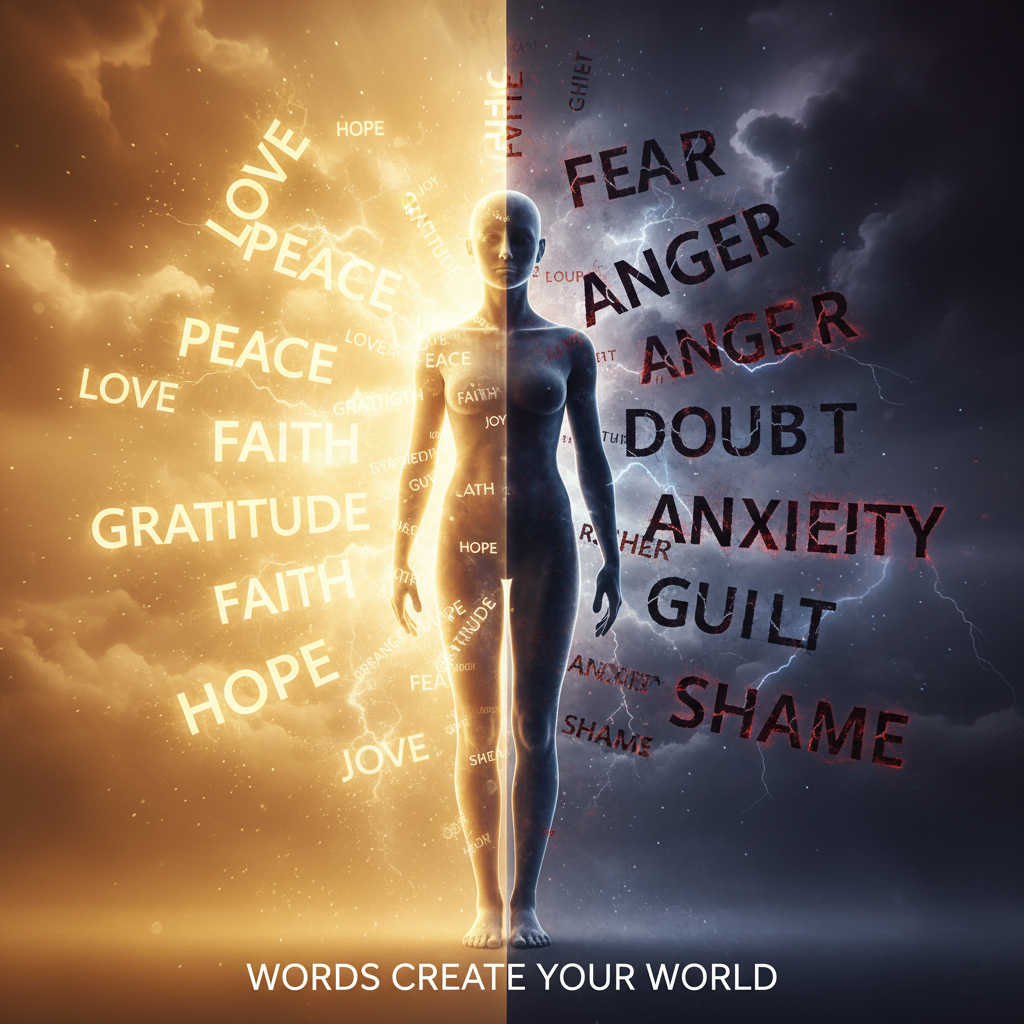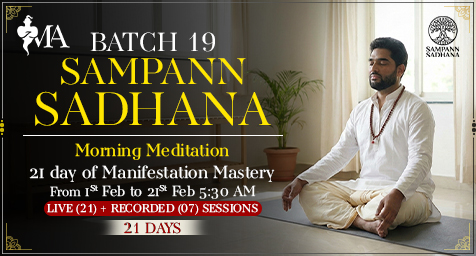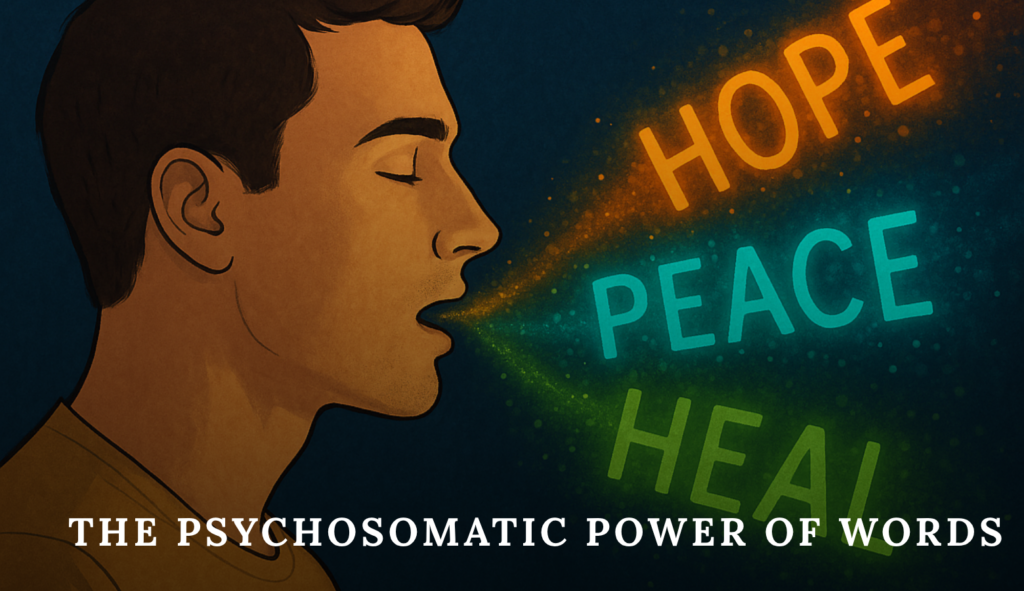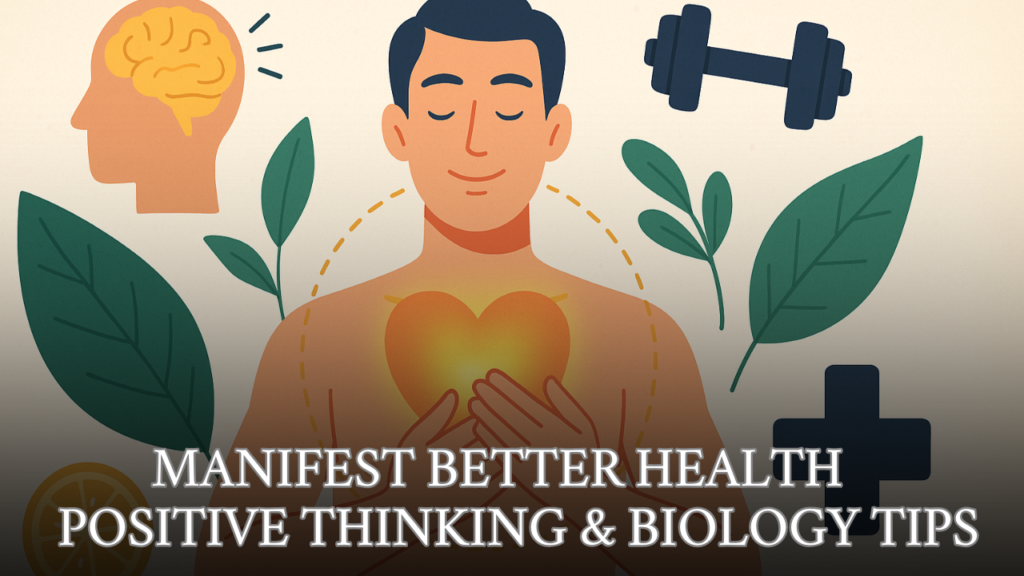Have you ever noticed how a single word can change your entire mood? A heartfelt “I love you” can bring warmth and safety, while a harsh “You’ll never succeed” can echo in your mind for years. Words are not just tools for communication: they are vibrations that shape your thoughts, emotions, and even your physical health.
Modern science now confirms what ancient wisdom has always taught: what you say affects how you feel. Words trigger biochemical responses in the body, rewire neural pathways, and program the subconscious mind. That’s why affirmations, mantras, and prayers have been practiced for centuries because language is energy, and energy creates reality.
Whether you speak them aloud or silently in your mind, your words are either invisible medicine or invisible poison. The choice is always yours.

The Science of Words and the Subconscious Mind
The subconscious mind doesn’t distinguish between reality and imagination it responds to language and imagery as if they are real. This is why the words you repeat to yourself become the scripts that guide your behaviour and emotional states.
Neuro-Linguistic Programming (NLP):
NLP research shows that language patterns directly influence thought patterns. For example, saying “I can’t” creates a neurological block, while saying “I’m learning” keeps the brain open to possibility.
The Placebo & Nocebo Effect:
- Placebo: When patients believe they are receiving medicine, their body often heals even if it’s just a sugar pill. Belief in the healing words of a doctor triggers actual biological healing.
- Nocebo: The opposite is also true negative suggestions or fearful words can cause real symptoms of illness, even without a physical cause.
Brain Imaging Evidence:
Studies in neuroscience show that positive words like “love,” “joy,” and “peace” activate brain regions linked with trust, motivation, and relaxation. In contrast, negative words trigger the amygdala, releasing stress hormones like cortisol. Over time, repeated exposure to negative language wires the brain for fear and anxiety.
Key Insight: Every word you say becomes an instruction for your subconscious. The more you repeat a word, the more your brain accepts it as truth and your body follows.
Psychosomatic Impact: How Words Affect the Body
The term psychosomatic means the mind (psyche) influencing the body (soma). Words are one of the most powerful psychosomatic triggers because they directly affect our physiology.
Stress Words and Cortisol:
When you hear or speak harsh, fearful, or critical words, your brain interprets them as threats. This activates the amygdala (the fear centre), releasing cortisol the stress hormone. Chronic exposure to negative self-talk or criticism can weaken immunity, disrupt digestion, and raise blood pressure.
Healing Words and Oxytocin:
On the other hand, kind and compassionate words release oxytocin, often called the “love hormone.” Oxytocin lowers stress, improves heart health, and builds emotional safety. This is why simple words like “I’m proud of you” or “You’re safe with me” have such profound impact on wellbeing.
Masaru Emoto’s Water Experiment:
Japanese researcher Dr. Masaru Emoto demonstrated how water molecules responded to words. Water exposed to words like “love” or “gratitude” formed beautiful crystalline patterns when frozen, while water exposed to “hate” or “anger” formed chaotic, distorted structures. Since our bodies are about 70% water, this suggests our internal environment is constantly shaped by the language we use.
Real-Life Stories:
- A patient told repeatedly, “You’re strong, you’ll heal soon,” often recovers faster than one who hears doubt or pity.
- Athletes who use positive self-talk like “I’ve trained hard, I’m ready” perform better than those who focus on fear of failure.
Key Insight: Words are not just sounds they are biochemical instructions. Every phrase you repeat becomes either medicine or poison for your body.
Words as Emotional Anchors
Words don’t just pass by they stick. They act as emotional anchors, creating lasting associations that can lift us up or hold us down for years.
How Emotional Anchoring Works:
- When a word is paired with strong emotion, it creates a subconscious link.
- For example, if a child constantly hears “You’re useless,” the word “useless” becomes anchored to shame. Later in life, even a small criticism may trigger the same deep emotional wound.
- On the other hand, words of encouragement like “You’re capable” anchor confidence, helping people take risks and grow.
Childhood Programming:
Much of our adult self-worth is shaped by the words we heard as children. Compliments and affirmations build resilience, while criticism and harsh language create limiting beliefs. These become the stories we unconsciously live by.
Healing Anchors: Affirmations & Mantras
- Affirmations: Repeated positive phrases gradually overwrite old negative scripts. Saying “I am enough” daily weakens the anchor of past self-doubt.
- Mantras: In Indian tradition, mantras like ॐ शान्तिः शान्तिः शान्तिः (Om Shanti Shanti Shanti) act as anchors for peace, calming the nervous system and raising vibration.
- NLP Anchoring: In modern psychology, NLP uses words paired with gestures or sounds to instantly trigger emotional states like confidence or calmness.
Practical Exercise: Write down three negative words that trigger you emotionally. Replace each with an empowering word (e.g., “failure” → “feedback,” “unworthy” → “growing”). Repeat these new anchors daily.
Spiritual & Ancient Wisdom on Word Power
Long before neuroscience confirmed it, ancient spiritual traditions already knew the power of words. Across cultures, speech was seen as sacred, not just communication, but creation itself.
Vedic Wisdom – Vak Shakti
In Indian philosophy, words are considered Vak Shakti – the power of speech that shapes reality. Before any ritual, a Sankalp (clear verbal intention) is declared. Mantras like ॐ (Om) or the Gayatri Mantra are believed to carry vibrational frequencies that realign body, mind, and spirit.
Biblical Wisdom – “In the Beginning Was the Word”
The Bible begins with: “In the beginning was the Word, and the Word was with God, and the Word was God.” Here, “Word” represents divine vibration – the source from which creation unfolded.
Sufi & Islamic Mysticism: Zikr (Remembrance)
In Sufi tradition, repeating sacred words or names of God (zikr) elevates consciousness. The repetition of divine words is not just prayer, but an energetic alignment with love and unity.
Buddhist & Zen Practices: Chanting for Healing
Buddhists use chants like Om Mani Padme Hum to purify emotions and raise compassion. Zen emphasizes mindful speech each word spoken is an expression of one’s awareness.
Across traditions, the common message is clear: words are not empty they carry energy that shapes both inner and outer worlds.
Reprogramming Through Conscious Language
The good news is, no matter what words have wounded you in the past, you can consciously reprogram your inner vocabulary today. By choosing your words wisely, you rewrite your subconscious story and shift your emotional reality.
Steps to Reprogram with Words:
- Notice Negative Self-Talk
- Pay attention to phrases like “I can’t,” “I’m unlucky,” or “I’m not good enough.” Awareness is the first step to change.
- Replace with Empowering Alternatives
- Instead of “I’m stuck,” say “I’m learning.”
- Instead of “I always fail,” say “I’m growing stronger.”
- Small shifts create big vibrational changes.
- Daily Affirmations
- Write 5 affirmations that align with your goals. Repeat them aloud every morning. Example: “I am worthy of love. I attract abundance with ease.”
- Gratitude Journaling
- Each night, write down three things you’re grateful for. Gratitude words naturally raise emotional vibration and attract more to be grateful for.
- Mantra or Prayer Practice
- Chanting Om Shanti for peace or repeating prayers like “Thank you” aligns your words with healing vibrations.
- Speak Kindly to Others
- Healing is not only internal. By speaking words of encouragement and kindness, you create positive energy in relationships, which reflects back to you.
Practical Exercise: For one week, eliminate one disempowering word from your vocabulary (e.g., “can’t,” “never,” or “hopeless”) and replace it with an empowering word. Notice how your mood shifts.
Using Words to Heal Relationships
Words have the power to build bridges or burn them. In relationships whether romantic, familial, or professional the language we choose determines the level of safety, trust, and intimacy we create.
The Neuroscience of Kind Speech
When we speak words of affirmation “I appreciate you,” “I hear you,” “I’m proud of you” the listener’s brain releases oxytocin, strengthening emotional bonds. On the other hand, harsh or critical words trigger the nervous system’s fight-or-flight response, making the other person defensive or withdrawn.
The Damage of Harsh Words
Even if said in anger and forgotten, negative words can linger for years in someone’s subconscious, shaping their self-image. A simple “You never listen” may become an emotional anchor of inadequacy for the receiver.
Healing with Compassionate Language
- Use “I feel” statements instead of blame. Example: “I feel hurt when…” instead of “You always hurt me.”
- Practice active appreciation: Speak gratitude aloud, not just in your mind.
- Pause before reacting: A mindful pause can prevent hurtful words and allow more conscious responses.
Ancient wisdom confirms this. The Rigveda states: “वाक् शक्तिः जीवनम्” (Vak Shaktiḥ Jīvanam) The power of speech is life. In relationships, this power can either breathe life into connection or suffocate it.
Key Insight: Every word in a relationship either plants seeds of love or weeds of resentment. Choose consciously.
Conclusion: Speak Your Way Into a Better Life
Words are not “just words.” They are living vibrations, shaping your emotions, health, relationships, and ultimately, your destiny.
- Science shows that words activate the brain and body, triggering hormones that affect how we feel.
- Psychology proves that self-talk programs the subconscious, creating beliefs that guide behavior.
- Spiritual traditions remind us that speech is sacred energy, capable of creating harmony or chaos.
The choice is always in your mouth literally. Speak fear, and you create fear. Speak love, and you create love. Speak limitation, and you bind yourself. Speak possibility, and you set yourself free.
As the Upanishads teach: “मनसा वाचा कर्मणा” (Manasa Vacha Karmana) By thought, word, and deed, reality is created. If thoughts are seeds, then words are the water that makes them grow.
So ask yourself: What kind of garden are you watering today with your words?
Start small: replace one negative phrase with one empowering phrase. Over time, these small shifts will rewire your mind, heal your body, and strengthen your relationships.
Because in the end, the words you speak shape the world you live in.
More from Dr Amiett Kumar:
Mind-Body Connection- How to Manifest Better Health with Positive Thinking
Table of Contents




